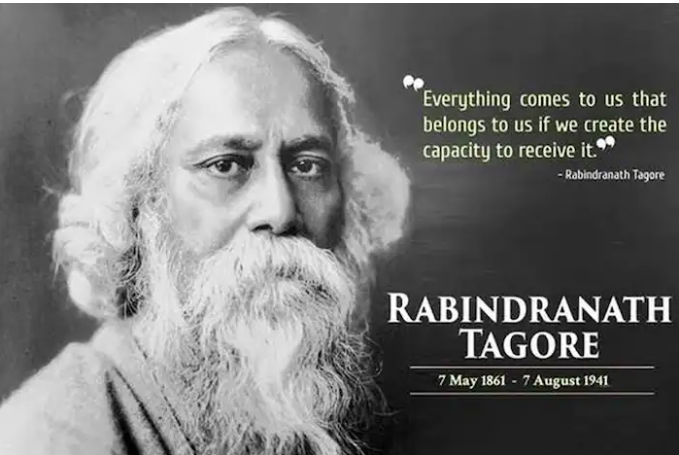In many songs of Gitanjali, Rabindranath engages with the idea of ‘waiting.’ The speaker-lover is seen pining for a meeting; she prepares herself and the house. Her gaze is glued to the door. Her beloved might enter anytime. Sometimes she stands by the window looking longingly at the path. In Song 26, Rabindranath extends this idea and gives it another possibility. What if the beloved came and the seeker never came to know about it? What if the lover-speaker slept at the epochal moment when the divine walked in?
Song 26 of Gitanjali has a tone of remorse. The speaker curses herself for not being attentive. She knows that her beloved passed by, sat by her side, and even played melodious music while she was lost in the land of sleep. Now that he has left, she realizes he had indeed come for her. In this song, like in most spiritual poetry, the ideas of sleep and wakefulness have been explored. Being awake is also about being mindful. We go about life mechanically, as if in slumber. No wonder we miss out on the moments when grace dawns. ‘Sleeping,’ thus, is a metaphor for ignorance. Without mindfulness, our lives can drone on without us appreciating any moment, for life ‘comes dropping slow,’ in moments and not momentous events.
Awake or Sleeping?
In the same context, I am reminded of an anecdote from Gautam Buddha’s life, often narrated by Swami. After having attained enlightenment Buddha was walking on a path when a monk saw him. Buddha’s face was effulgent. An enigmatic smile played on his lips. Dumbstruck, the monk asked him, “Peace and contentment radiate from your very being. Are you a saint?”
“No,” Buddha smiled.
“An angel then—a deva?”
“Not at all,” said Buddha, nodding his head in dissent.
“A yaksha perhaps or some other celestial being.”
“None of these, I assure you,” said Buddha, a genial smile coloring his face.
The monk was thoroughly confused by now. He still managed doubtfully, “You certainly are someone unique. After all, you look very different from me and everyone else.”
“The only difference is that I am awake, and you are sleeping,” replied Buddha and strode on his path.
Song 26
He came and sat by my side but I woke not. What a cursed sleep it was, O miserable me!
He came when the night was still; he had his harp in his hands, and my dreams became resonant with its melodies.
Alas, why are my nights all thus lost? Ah, why do I ever miss his sight whose breath touches my sleep?
Here’s my recitation of the poem.

Welcoming the Beloved
The idea of eternal wait (for the God-beloved) and preparation for welcome has been employed very frequently in folk songs, Sufi, and bhakti poetry. Influences of Sufi and Fakir songs can be clearly seen in Gitanjali. In these songs, the speaker-lover is often a woman getting ready to welcome her beloved. Consider the following song by Sufi singer, musician, and poet Amir Khusrau: “Ae ri Sakhi more piya ghar aaye, bhag lage is angan ko.”
Many of Khusrau’s songs, written in a mix of Brij bhasha and Khari boli, are in the voice of a woman. One can read them at two levels: Physical and spiritual. Khusrau, impersonating a woman, dedicates his song to his beloved—his spiritual master, Hazrat Nizamuddin Auliya. He often calls himself the soul-bride of his master, drenched in his color.

Here’s the rendition of “Ae ri Sakhi” by Papon.









Comments & Discussion
9 COMMENTS
Please login to read members' comments and participate in the discussion.